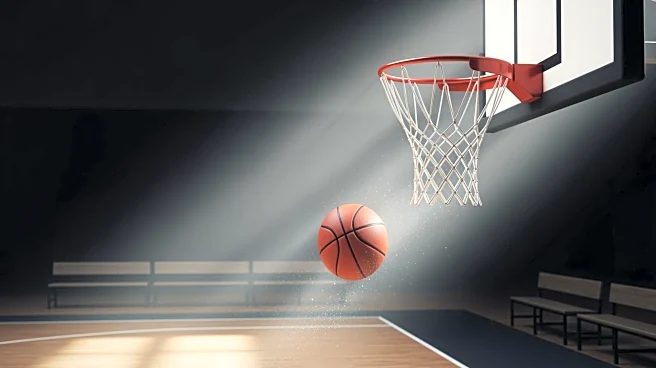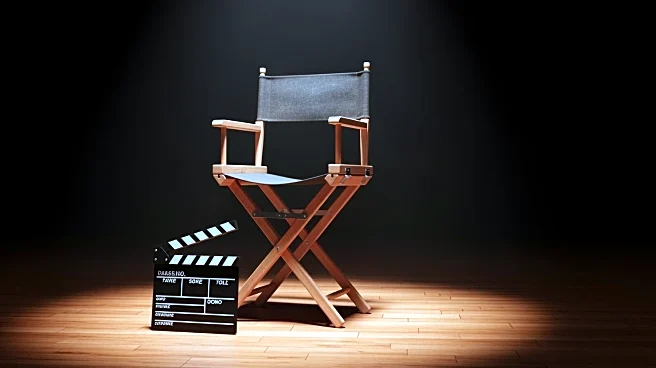What's Happening?
Loyola Chicago's men's basketball team secured a dramatic 91-88 victory over Cleveland State in their first official game since the passing of Sister Jean Dolores Schmidt, the team's beloved chaplain.
The game was marked by a last-second 3-pointer from Deywilk Tavarez, which clinched the win. Sister Jean, who passed away last month at the age of 106, had been a significant figure in the program since 1994, providing spiritual guidance and support. Her influence was felt during Loyola Chicago's memorable run to the Final Four in 2018, where she gained international recognition. The team is honoring her memory this season with a patch on their uniforms.
Why It's Important?
Sister Jean's legacy extends beyond her role as a chaplain; she became a symbol of inspiration and community for Loyola Chicago and its supporters. Her presence was a motivational force for the team, and her absence marks a significant emotional transition. The team's victory serves as a tribute to her enduring impact, highlighting the role of community figures in sports. This event underscores the importance of mentorship and spiritual support in athletic programs, influencing team morale and performance.
What's Next?
Loyola Chicago will continue their season, carrying the memory of Sister Jean with them. The team will likely face emotional challenges as they adjust to her absence, but they are motivated to honor her legacy through their performance. The patch on their uniforms serves as a constant reminder of her influence, and the team may engage in further tributes or memorials throughout the season. Fans and supporters will watch closely to see how the team channels Sister Jean's spirit in upcoming games.
Beyond the Headlines
Sister Jean's story highlights the intersection of sports and personal relationships, illustrating how figures outside of the traditional coaching staff can profoundly impact a team's culture. Her legacy may inspire other programs to recognize and integrate community figures who contribute to the emotional and spiritual well-being of athletes. This development could lead to broader discussions on the role of non-traditional mentors in sports.










